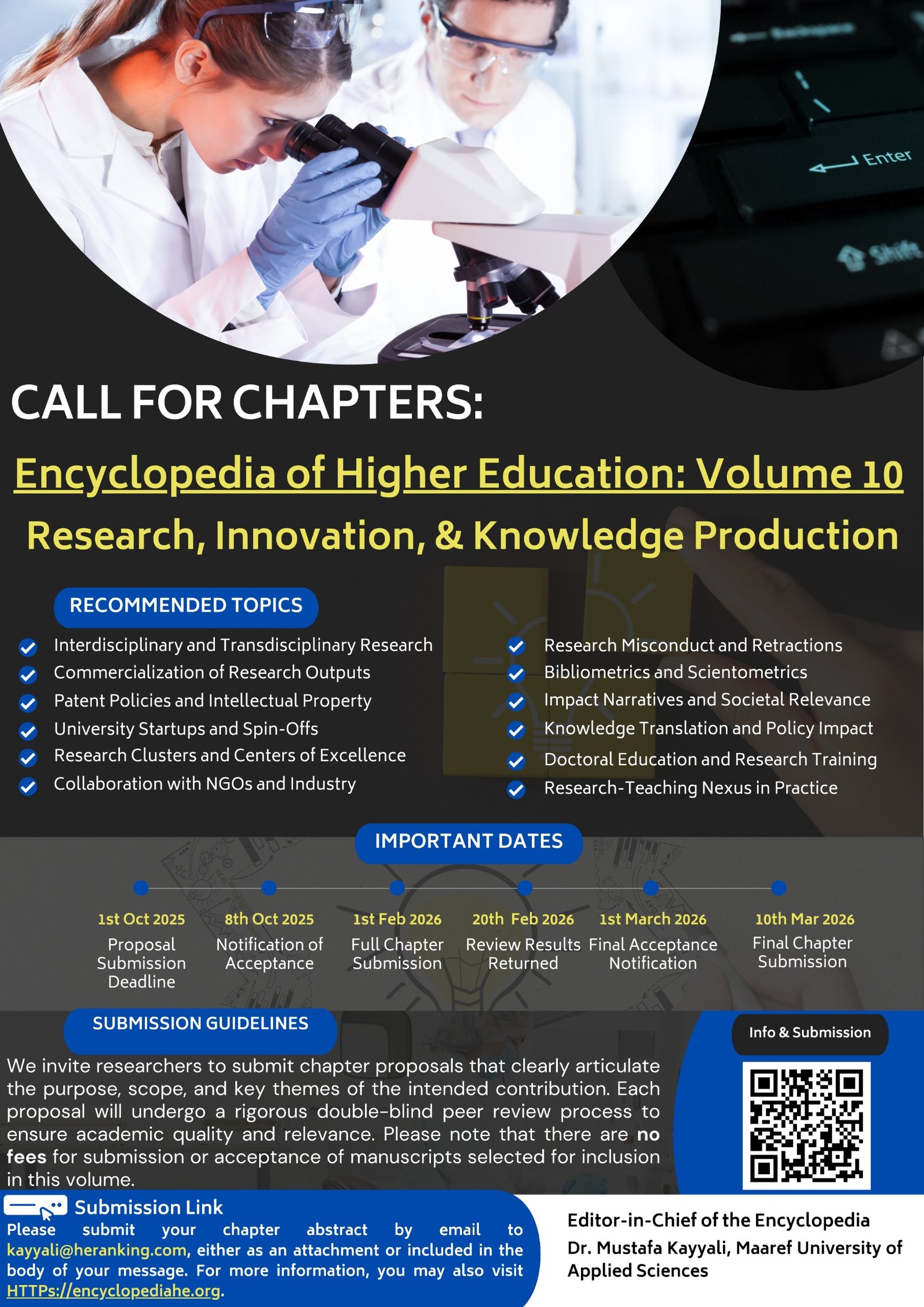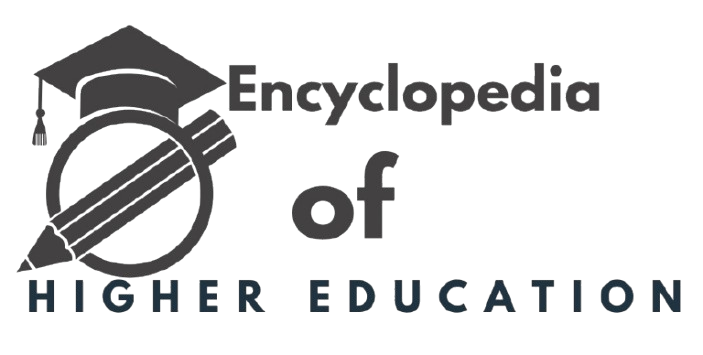Volume 10. Research, Innovation, and Knowledge Production
Overview
This volume explores the dynamic landscape of research and innovation within global higher education, highlighting how knowledge is created, validated, disseminated, and applied across disciplines and borders. It critically engages with both traditional and emerging paradigms of scholarly inquiry, encompassing interdisciplinary research, intellectual property frameworks, commercialization strategies, and university-industry partnerships. It examines institutional mechanisms—such as research clusters, grant management offices, and doctoral training structures—that support research ecosystems. In parallel, the volume scrutinizes ethical standards, issues of misconduct, the role of metrics in evaluating output, and the movement toward open science and responsible research assessment. A growing focus is placed on inclusion, social relevance, and the decolonization of epistemic hierarchies in knowledge production, particularly within the context of Global South engagement and Indigenous systems of knowledge.
Importance and Impact
Research and innovation are at the heart of university missions—but how these processes are governed, evaluated, and utilized matters immensely. This volume addresses the widening gap between academic knowledge production and its societal impact, urging a shift from quantity to quality, and from insularity to engagement. It emphasizes the importance of equitable access to research funding, ethical stewardship of data, and institutional strategies that encourage responsible innovation. As geopolitical tensions, technological disruption, and global crises reshape the research landscape, universities must foster environments that support ethical inquiry, protect academic integrity, and democratize knowledge creation. By understanding the forces that shape research ecosystems, this volume serves as a crucial guide for scholars, administrators, and policymakers seeking to build resilient, innovative, and inclusive research cultures.
Submission Guidelines
Word Count: 5,000 to 6,000 words
Each chapter should be between 5,000 and 6,000 words, including references. This length allows contributors to develop their argument with sufficient depth while remaining accessible to a global readership.
Language: English
All submissions must be written in clear, academic English. Contributors are encouraged to use inclusive language and ensure clarity for an international audience.
Citation Style: APA (7th edition preferred)
Please follow APA Style, 7th edition, for all in-text citations, reference lists, headings, and formatting. Consistency in referencing ensures academic integrity and ease of cross-referencing.
References: At least 80% published after 2021
To ensure the relevance and timeliness of each chapter, at least 80% of cited sources should be published from 2021 onward. This helps maintain the encyclopedia’s credibility and reflects current research and policy discussions.
File Format: Microsoft Word (.docx)
Submissions must be uploaded in Microsoft Word format (.docx only). This format allows for easier editing, formatting, and review throughout the publication process.
Interested in Contributing?
Researchers and authors who wish to participate in the Encyclopedia of Higher Education project are invited to send their abstract, chapter idea, or full submission directly to: kayyali@heranking.com
Alternatively, you may fill out the following form to express your interest and submit your proposal.

Recommended Topics for Contribution
Authors are welcome to explore any of the following themes—or propose their own original focus aligned with the volume’s scope:
1- Interdisciplinary and Transdisciplinary Research
2- Commercialization of Research Outputs
3- Patent Policies and Intellectual Property
4- University Startups and Spin-Offs
5- Research Clusters and Centers of Excellence
6- Collaboration with NGOs and Industry
7- Research Misconduct and Retractions
8- Bibliometrics and Scientometrics
9- Impact Narratives and Societal Relevance
10- Institutional Research Offices and Grant Support
11- Research Strategies and Funding Portfolios
12- Knowledge Translation and Policy Impact
13- Doctoral Education and Research Training
14- Indigenous Knowledge Systems and Epistemic Justice
15- Global South Research Capacity and North-South Partnerships
16- Responsible Research Assessment (e.g., DORA principles)
17- Role of Philanthropy in Research Funding
18- Research-Teaching Nexus in Practice
19- Artificial Intelligence and Knowledge Generation
20- Global Open Science Movements
21- Research Security and Geopolitical Tensions
22- Innovation in Humanitarian Research
23- Postdoctoral Training and Career Development
24- Citizen Science and Participatory Research
25- Gender Gaps in Research Funding
26- Inter-Institutional and Cross-Sectoral Research Collaborations
27- Research Ethics in Cross-Cultural Contexts
28- Strategic Planning for Research Infrastructure
29- Evaluating Societal Impact of Research
30- Decolonizing Academic Knowledge Systems
